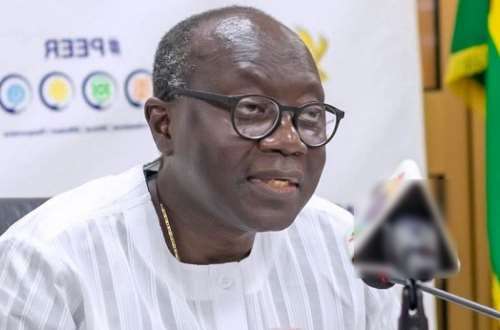Ghana is currently in talks with the International Monetary Fund (IMF) to secure a three-year, $3bn loan programme to provide vital assistance to its economy, which has been struggling in the wake of the Covid-19 pandemic. The programme, which was agreed upon at the staff level in December of last year, requires that bilateral financing assurances be provided to Ghana to satisfy the IMF’s executive board before the loan is approved.
According to IMF spokesperson Julie Kozack, the organisation has seen “good progress” in the provision of these financing assurances, and is hopeful that the IMF executive board can quickly consider the Ghana program once enough official bilateral creditor assurances have been secured. Kozack further stated that there has been considerable headway made towards creditors delivering on these financing assurances, and the IMF is optimistic that they can be delivered expeditiously.
Ghana has experienced significant economic challenges due to the impact of the Covid-19 pandemic, with the country’s revenue declining and its spending on pandemic-related measures increasing. The IMF loan programme will help to bridge the fiscal gap and support Ghana’s economic recovery efforts. Ghana’s finance minister, Ken Ofori-Atta, recently stated that he expects IMF board approval for the loan in May.
The potential loan has garnered widespread support from various stakeholders in Ghana, including businesses, government officials, and the general population. Many have emphasised the importance of international support in mitigating the economic challenges faced by the country, and fostering long-term economic growth.
The IMF loan programme is part of a broader effort to support developing countries as they recover from the pandemic’s impact. It is a testament to the critical role that international organisations play in supporting countries during difficult times, and the need for global cooperation to tackle economic and social challenges.
The $3bn loan programme is expected to provide significant financial support to Ghana, helping to restore economic stability and pave the way for long-term growth. The country’s economy has shown resilience in the face of the pandemic, and with the IMF’s continued support, it can emerge from this crisis stronger than before. As the world continues to face the challenges of the pandemic, the IMF’s commitment to supporting developing countries remains crucial in ensuring a swift and sustainable recovery.
Source: Norvanreports

